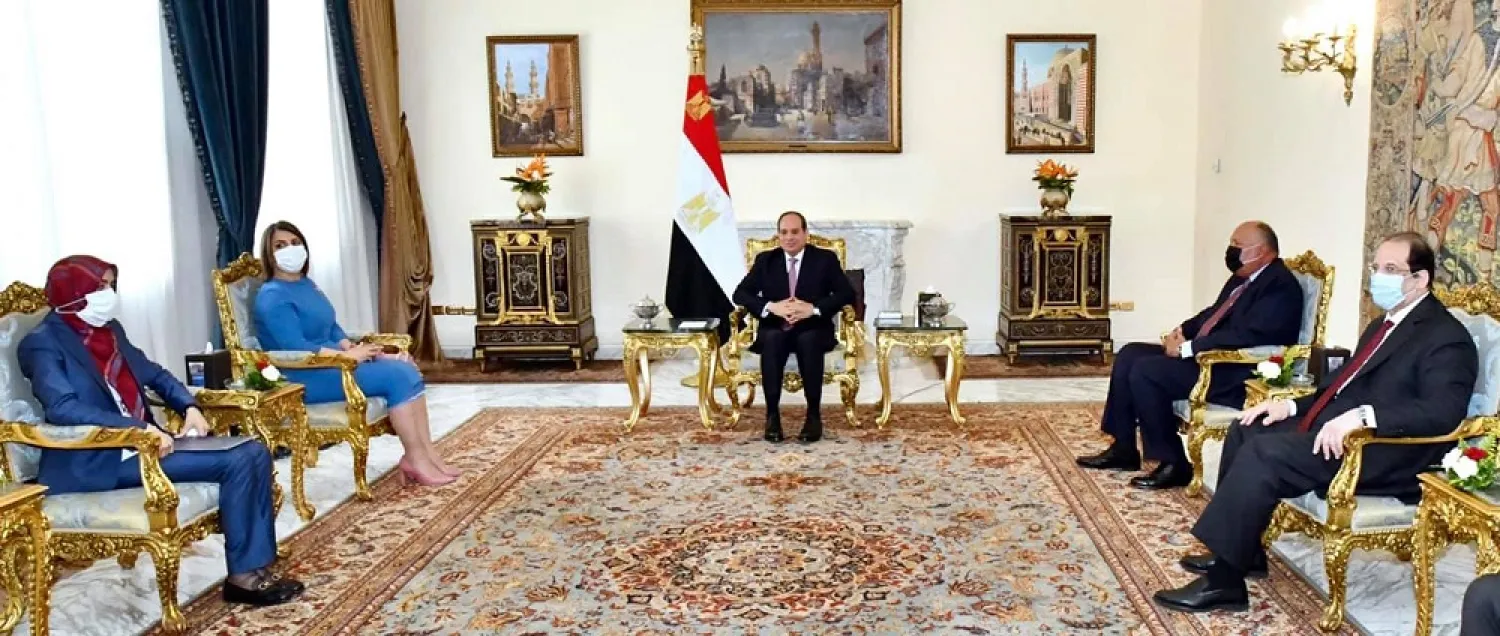Egyptian President Abdul Fattah al-Sisi stressed on Sunday’s his country’s “full support” to the Libyan Government of National Unity (GNU) and its mission to restore Libyan security and stability during the interim phase.
The government was formed earlier this year with the aim of holding elections in December.
Sisi received in Cairo on Sunday Libyan Foreign Minister Najla el-Mangoush on the second day of her visit to Egypt.
He stressed that holding elections is an “essential” step in the political settlement in that they will help “restore the free voice of the people”.
Cairo fully supports Libya as it forges ahead on its political path, he added, declaring that its “national security is an extension of Egypt’s”.
The meeting was attended by Foreign Minister Sameh Shoukry and Egyptian head of intelligence Abbas Kamel.
Sisi underscored Egypt’s firm support to Tripoli that is based on preserving Libya’s territorial integrity, adding that it does not intervene in its internal affairs.
He stressed the need for Libya to restore its sovereignty, starting with the withdrawal of all foreign forces and mercenaries from its territories.
For her part, el-Mangoush hailed “Egypt’s pioneering role in the region, through the wise leadership of President Sisi, and its intense and sincere efforts to support its brothers in Libya.”
These efforts stem from its belief in the territorial integrity of Libya as it restores its security, stability and national institutions, including the reunification of the military, she continued.
El-Mangoush had met on Saturday with Shoukry to coordinate stances ahead of the Berlin 2 international conference on Libya that is set for Wednesday.
They said that the withdrawal of foreign forces and mercenaries was of the utmost importance. They also called an end to foreign meddling in Libyan affairs.
El-Mangoush said: “The only solution to support stability and peace in Libya lies in ending foreign interference and the pullout of foreign forces and mercenaries.”









